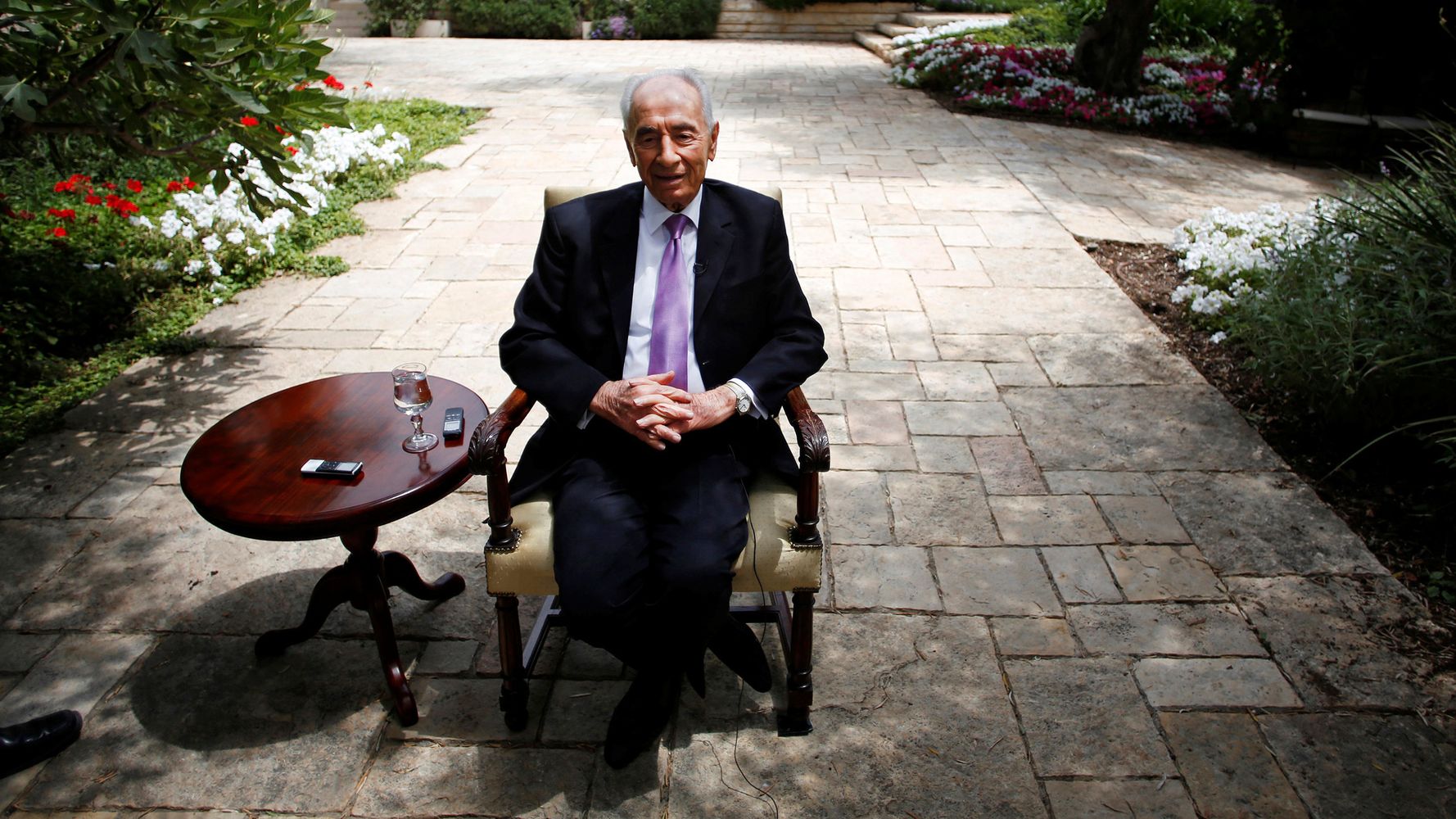Nathan Gardels is the editor-in-chief of Noema Magazine. He is also the co-founder of and a senior adviser to the Berggruen Institute.
Shimon Peres never stopped seeking. He was always looking for new solutions to old problems ― and even ancient enmities. The older he got, the more he looked ahead, observing how the world was changing and what it would mean, including for the survival of Israel, the nation of which he was among the founding generation.
This journey took him along markedly different paths at different times. As has been widely remarked, he went “from Dimona to Oslo,” that is, from shepherding Israel’s nuclear weapons capacity to sharing a Nobel Peace Prize with Israel’s late former Prime Minister Yitzhak Rabin and late Palestinian leader Yasser Arafat for his role negotiating a peace accord with the Palestinians.
‘There are no front lines in war or peace.’
One of Peres’ more endearing attributes, which I came to appreciate when I edited his syndicated column during his few years out of some or another office, was to compress his observations into apt aphorisms. Once, when discussing the turn of the Western press from hard news to mass infotainment in a conversation with the Hollywood director Sydney Pollack, he quipped: “In many ways the media today makes dictatorship impossible. But it also makes democracy intolerable.” Noting how terrorism, cyberattacks, ballistic missiles, economic interdependence and the planetary reach of the media erased borders, he said in a separate conversation, “there are no front lines in war or peace.“
‘A Jewish state is not a religious notion but a democratic one.’
For an aging politician, he was quick to grasp the disruptive impact of the internet. “The power of governments was largely due to the monopoly they had over the flow of knowledge,” he said in a conversation with Microsoft founder Bill Gates in the late 1990s in Davos, Switzerland. “But ever since knowledge has become available to all, a new dynamic has been set in motion and cannot be stopped.” He continued:
Each and every citizen can become his own diplomat, his own administrator, his own governor. The knowledge to do so is available to him. He is no longer inclined to accept directives from on high as self-evident. He judges for himself.
Throughout all the twists and turns of his life and the changes he witnessed, Peres hewed to clear-minded realism about Israel and Zionism not shared by current Prime Minister Benjamin Netanyahu and his hard-line allies. Writing on the 10th anniversary of the Oslo Accords in 2003, he responded to the critics:
Those who advocated a ‘Great Israel,’ the ones that opposed a Palestinian state … are the very ones that created the greatest illusion in the annals of Zionism. Namely, that it is possible to maintain a Jewish and democratic state on all of the territory that lies between the River Jordan and the sea. On this stretch of land live 5.5 million Jews and 4.5 million Palestinians. If a division of territory is not effected, within a decade, the Arab minority will have become an Arab majority. Israel will no longer be a Jewish state or, alternatively, will stop being a democratic state.
A Jewish state is not a religious notion but a democratic one: the creation of one place in the world where the Jewish people are in the majority. Should the Jewish people lose their majority, they will turn into exiles in their own country. And the 100-year effort to build a Jewish and democratic state will have gone down the drain. And if an attempt will be made to rule, not by the strength of a majority, but by the strength of force, then we shall have betrayed the ethical values of the Jewish people.
 GALI TIBBON via Getty Images
GALI TIBBON via Getty ImagesWhen Yasser Arafat died in 2004, Peres wrote a kind of eulogy:
The passing of a father is always a cause for deep grief. But it is also an opportunity to emerge as a mature adult. The world is watching now the orphaned Palestinian people. The world hopes to see them take control of their own fate, bid farewell to their dreams of youth, and exhibit the courage to live in this world as it is, rather than as they wish it to be.
At this moment of his own passing, one wonders if what Peres said of Arafat may apply as well to Israel.





